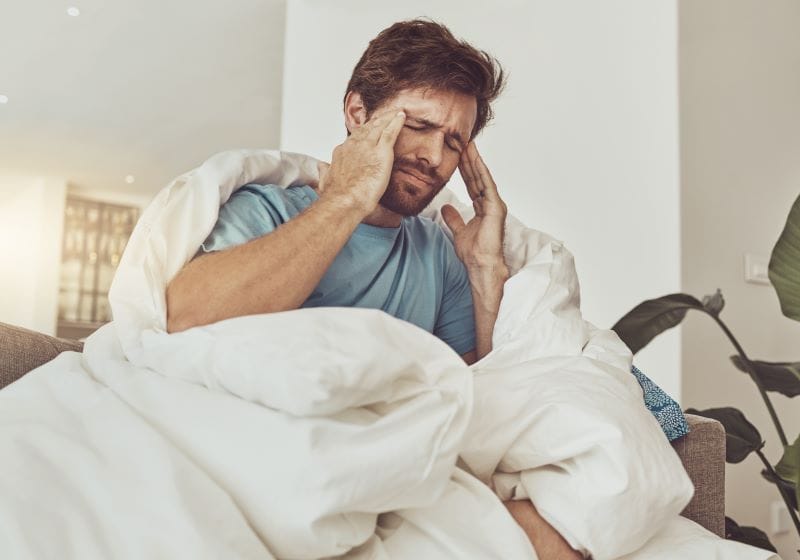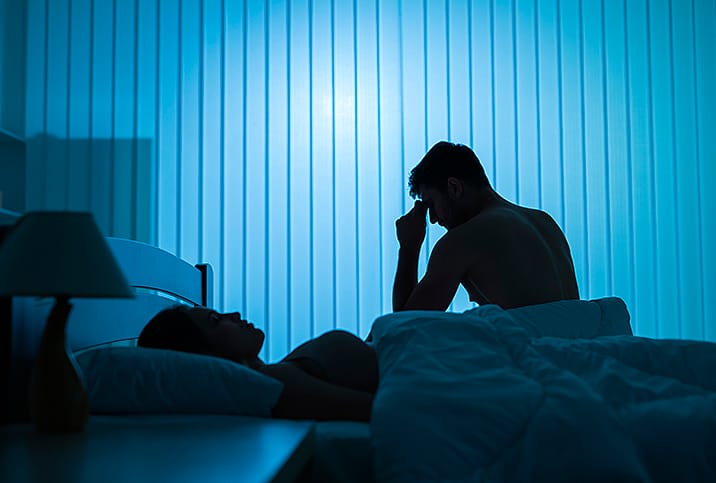Speeding Up POIS Recovery: What You Can Do to Feel Better Faster
For individuals living with Post-Orgasmic Illness Syndrome (POIS), recovering from an episode can feel overwhelming and time-consuming. The symptoms can range from brain fog and fatigue to muscle aches and anxiety, leaving people in a vulnerable state for days. While there’s no cure for POIS, adopting certain recovery strategies may help reduce the length and intensity of episodes. In this article, we’ll explore how to recover faster from POIS, offering practical and easy-to-implement tips to help you regain your sense of well-being more quickly after an episode.

Understanding the Connection Between Food and POIS
Recovering from a POIS episode can take anywhere from a few hours to several days, depending on the individual and the severity of the symptoms. Because POIS symptoms affect both the mind and body, it’s important to understand that recovery is holistic. This means focusing on rest, hydration, nutrition, and mental health to give your body the best chance of bouncing back quickly. While each person may need a tailored approach, several common strategies have been shown to help individuals recover faster and reduce the frequency of POIS episodes.
Rest and Sleep: Prioritize Recovery Time
One of the most important aspects of recovery from a POIS episode is rest. POIS symptoms, such as fatigue and muscle weakness, are your body’s way of signaling the need for rest and recovery. Getting enough sleep is crucial, as it allows your body to heal and repair itself. Here’s how you can enhance your rest:
- Create a Sleep-Friendly Environment: Make your bedroom as comfortable as possible—dim the lights, maintain a cool temperature, and use relaxing scents like lavender to create a calming atmosphere.
- Stick to a Sleep Schedule: Go to bed and wake up at the same time each day, even on weekends. Consistency helps regulate your body’s internal clock, making it easier to fall asleep and stay asleep.
- Power Naps for Energy: Short naps (15–30 minutes) during the day can help boost your energy levels, especially if you’re experiencing intense fatigue.
Stay Hydrated: The Power of Water in Recovery
Hydration plays a major role in your body’s recovery process, especially when dealing with POIS symptoms like brain fog, headaches, and muscle aches. Drinking plenty of water helps flush toxins from your system and keeps your energy levels stable. Tips to stay hydrated include:
- Drink Water Consistently: Don’t wait until you feel thirsty. Aim to drink water regularly throughout the day to stay ahead of dehydration.
- Add Electrolytes: If you experience severe fatigue or muscle cramps, consider drinking electrolyte-rich beverages (like coconut water) to replenish lost minerals.
- Herbal Teas for Relaxation: Chamomile, peppermint, or ginger teas not only hydrate but also promote relaxation, which may ease anxiety or stress following an episode.
Proper Nutrition: Fuel Your Body for Faster Healing
Nutrition plays a vital role in helping you recover faster from a POIS episode. Eating a balanced, nutrient-rich diet provides your body with the necessary tools to fight inflammation, repair tissues, and boost energy levels. Focus on these dietary strategies:
- Anti-Inflammatory Foods: Since POIS may trigger inflammatory responses, it’s a good idea to include foods that reduce inflammation. Some great options include turmeric, ginger, leafy greens, and fatty fish (like salmon or mackerel).
- Boost Immune Function: Incorporate foods rich in vitamins and minerals that support immune health, such as citrus fruits (vitamin C), nuts and seeds (zinc), and colorful vegetables (antioxidants).
- Light, Frequent Meals: Eating smaller, lighter meals throughout the day can prevent the sluggishness that often follows large meals and maintain energy levels.
Manage Stress and Anxiety: Mental Health Matters
The psychological impact of POIS can be just as challenging as the physical symptoms. For many, POIS episodes bring heightened anxiety, mood swings, or even feelings of depression. Managing your mental health is key to speeding up recovery. Some ways to help:
- Mindfulness and Meditation: Engaging in mindfulness exercises or meditation can calm racing thoughts, reduce anxiety, and improve mental clarity after a POIS episode.
- Deep Breathing Techniques: Simple deep breathing exercises help relax your nervous system, decrease stress, and promote relaxation.
- Journaling: Writing down your thoughts and feelings can help you process emotions and identify patterns or triggers that may worsen symptoms.
Gentle Movement and Stretching: Ease Back into Activity
While vigorous exercise may be too taxing during a POIS episode, gentle movement can stimulate circulation, reduce muscle stiffness, and boost your mood. Engaging in light physical activity, such as stretching or slow walks, can help your body recover. Some recommendations:
- Light Stretches: Focus on stretching key areas, such as the back, neck, and legs, to alleviate muscle tightness. Yoga stretches are particularly effective for gentle movement.
- Walking: If you’re able, take a brief, slow walk to get fresh air and gently increase blood flow without putting too much strain on your body.
- Gentle Yoga: Consider restorative yoga poses, which emphasize deep breathing and relaxation while engaging the body in slow, controlled movements.
Preventing Future Episodes: Long-Term Management
While this article focuses on recovering from an active POIS episode, it’s also important to consider strategies for preventing future occurrences. By taking a proactive approach, you can reduce the frequency and intensity of POIS symptoms. Consider:
- Identify Triggers: Keep a symptom diary to track potential triggers, such as stress, certain foods, or lack of sleep. Identifying your triggers can help you take steps to avoid or minimize them in the future.
- Establish a Routine: Create a daily routine that prioritizes rest, proper hydration, healthy eating, and stress management. Consistency in these areas may help reduce the likelihood of future episodes.
Conclusion
Recovering from POIS requires a balanced approach that focuses on physical and mental well-being. By incorporating strategies such as rest, proper nutrition, hydration, and stress management, individuals can support their body’s recovery process and potentially reduce the impact and frequency of POIS episodes. While each person may respond differently to these methods, understanding what works best for your body can help you regain a sense of control and improve your quality of life despite the challenges posed by the condition.
